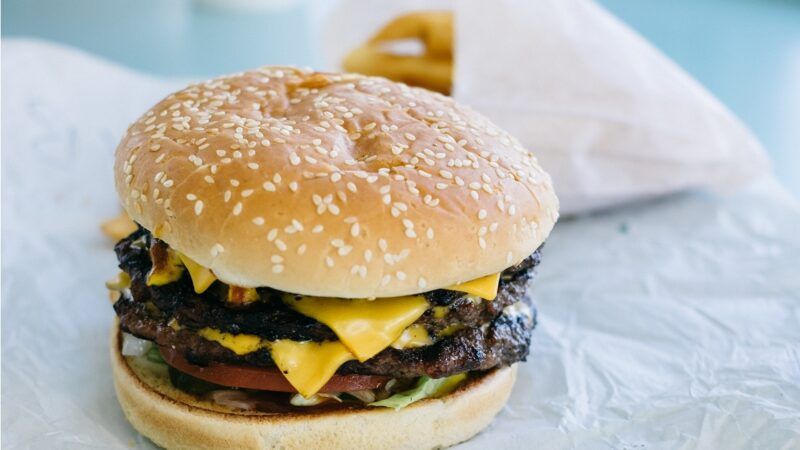The Government Is Making Us Fat and Susceptible to Viruses
The vast majority of hospitalized COVID-19 patients are overweight. Why won’t the government stop subsidizing junk food?

In all the coronavirus coverage, one issue that rarely makes the headlines is the correlation between body weight and the severity of COVID-19's effects. And one angle that virtually never makes the headlines is how the government funds the unhealthy foods that increase obesity rates, thereby increasing our susceptibility to such diseases.
Last month the Centers for Disease Control and Prevention (CDC) released a study showing that nearly 80 percent of those hospitalized with COVID-19 were overweight or obese. After age, body weight is the second greatest predictor of COVID-related hospitalization and death. Almost three quarters of all Americans ages 20 and up are overweight, and close to half of that group is considered obese.
That might be one of the reasons why Asian countries whose populations have low body mass indexes (BMI) have fewer deaths per capita from COVID-19, while the United States has one of the highest death rates from the virus in the world.
"The correlation between obesity and mortality rates from COVID-19 is clear and compelling," World Health Organization chief Tedros Adhanom Ghebreyesus has said. "This must act as a wake-up call to governments globally."
It is not a wakeup call in America. Not only is the U. S. government not making any efforts to reduce the obesity epidemic, it is actively subsidizing food that contributes to the problem. The U.S. Department of Agriculture recommends that people fill half their plate with fruits and vegetables, yet the vast majority of its food subsidies—$170 billion from 1995 to 2010—go toward the major ingredients of junk food, such as corn, wheat, rice, soy, and milk.
"Hundreds of billions of dollars are funneled into subsidized foods that largely end up in drive-thru windows and in processed food manufacturers," said Eat Smarter author Shawn Stevenson on the Fat-Burning Man podcast. "A study tracked the results of the food subsidies by our government. The folks with the highest consumption of these government subsidized foods had a 40 percent increase in the risk of being obese. Our government is funding sickness."
Stevenson is referring to a Journal of the American Medical Association (JAMA) study that showed those who consumed the most government-subsidized foods had a 37 percent greater risk for obesity, a 41 percent greater risk of belly fat, and a 34 percent higher risk for elevated inflammation, compared to the lowest consumption quartile.
The resulting susceptibility to disease goes well beyond the current pandemic. In 2018, JAMA reported that poor diet is the number one cause of chronic disease in the United States. Small wonder, given that more than 122 million Americans are diabetic or prediabetic, 240 million are overweight or obese, and nearly 60 percent have some form of cardiovascular disease.
We have the power to make real changes in the way we eat and move. The government could help that process by taking its thumb off the scale and ceasing to subsidize these foods.


Show Comments (107)